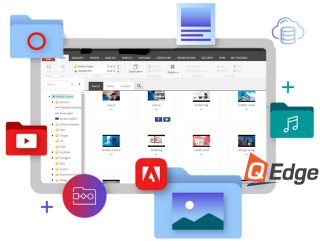As a Sitecore Platinum partner, QEdge has witnessed a significant shift towards Direct-to-Consumer (D2C) e-commerce, a model that offers numerous advantages over traditional Business-to-Consumer (B2C) approaches.
In this article, I'll explore the key differences between D2C and B2C, the origins and competitive advantages of D2C, and strategies for crafting a winning D2C e-commerce strategy.
D2C vs. B2C: Understanding the Differences
While D2C and B2C may sound similar, there are pronounced differences between the two. D2C involves selling products directly to consumers via digital channels, eliminating the need for intermediaries such as retailers or wholesalers. In contrast, B2C companies often serve as intermediaries, connecting buyers and sellers without actually owning the products or services.
The benefits of a D2C e-commerce strategy are numerous, including:
- Personalization and customization
- Greater product variety
- Guaranteed inventory
- Increased cost control
- Actionable data insights
- Opportunities to engage and influence marketing, production, and distribution
The Origins of D2C E-commerce
Although selling directly to consumers is not a new concept, the rise of digital commerce has transformed market dynamics. Brands now have the flexibility to test distribution methods, shape retail relationships, and create tailored customer experiences through e-commerce websites.
The pandemic has further accelerated the shift towards D2C, as consumer expectations have evolved to favor brands that offer omnichannel shopping experiences. Consequently, more brands are turning to composable commerce solutions to adapt to changing consumer trends and demands.
Competitive Advantages of D2C
The D2C retail model offers several competitive advantages that are disrupting traditional retail:
- Brand control: D2C allows businesses to maintain total control over their products and opt for omnichannel selling across all relevant touchpoints.
- Innovation opportunities: Manufacturers can launch new products at a smaller scale, test with selected demographics, and collect feedback to understand customer preferences and improve accordingly.
- Access to customer data: D2C provides personalized contact and enables manufacturers to gain insights into who's buying, allowing them to optimize existing products and create new product lines.
- Higher margins: By eliminating intermediaries, brands can sell products at the same price as retailers, positively impacting their bottom line.
- Stronger brand loyalty: D2C companies have more autonomy in providing better service and support, driving strong relationships and retention through targeted marketing campaigns.
- Global reach: Without geographical restrictions imposed by retailers, partnerships, or distributors, manufacturers can sell to the right customer segments in the right market.
- Flexibility: Creating forward-looking plans ensures that the model remains consistent and adaptable to unpredictable consumer needs.
Crafting a Winning D2C Strategy
A solid D2C strategy requires a foundation of robust data. By leveraging up-to-date, real-time information, brands can create relevant, personalized, omnichannel experiences that foster trust and loyalty among customers.
To deliver these tailored experiences at scale, Sitecore offers a suite of next-generation solutions:
- Sitecore CDP: An advanced customer data platform that eliminates data silos and creates a single customer view, consolidating real-time and historical data from all online and offline channels.
- Sitecore Personalize: A goal-driven personalization and optimization solution that enables the creation of hyper-relevant experiences for every customer in every moment.
- Sitecore XM Cloud: A SaaS enterprise-ready CMS that creates content once and delivers it across any channel for relevant, impactful customer experiences.
- Sitecore OrderCloud®: A scalable and composable cloud-native e-commerce platform that powers custom e-commerce experiences, order management, and B2X models and marketplaces.
Embracing the Future with Sitecore OrderCloud
As part of its commitment to staying ahead, Sitecore acquired Four51 and its headless commerce platform, OrderCloud. This MACH-certified, fully hosted, and cloud-native SaaS headless commerce solution offers nearly limitless customizations and endless freedom for growth.
OrderCloud's extensible nature enables e-commerce stores to cater to multiple verticals beyond B2B, including B2C and B2X. With preconfigured components, a hosted SaaS offer, product orchestration capabilities, and its role in Sitecore's composable future, OrderCloud is an attractive choice for enterprises looking to solve issues such as limited commerce flexibility, lack of scalability, security concerns, and poor visibility over store processes.
Partnering with QEdge for D2C Success
At QEdge, our extensive Sitecore experience and expertise position us to help global brands maximize their e-commerce potential. As a certified Sitecore Platinum partner, we are equipped with the tools and knowledge needed to implement Sitecore Experience Commerce or Sitecore OrderCloud, depending on your brand's specific needs.
By partnering with QEdge, you can leverage our team of Sitecore experts to maximize the value of your marketing efforts and embrace the D2C e-commerce revolution with confidence.







